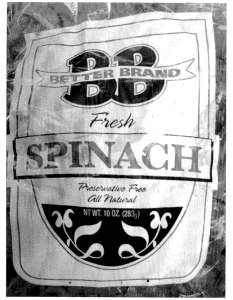Tim Worstall, whose latest book is “23 Things We Are Telling You About Capitalism” writes in Forbes in yet another way of the power of marketing food safety – at retail — that Don Boudreaux outlines the value of brands in maintaining or increasing the quality of foodstuffs subject to branding. He then goes on to ask whether there have been any empirical studies of which method actually improves quality the most. I’m afraid that all I can offer is anecdote here from the UK’s history: but branding most definitely came first in the clean up of mid-19th century food supplies.
 Here’s Boudreaux:
Here’s Boudreaux:
Because Smith will in fact supply milk of consistently good quality (with “good quality” here determined by consumers rather than by bureaucrats, dietary “experts,” or other officious intermeddlers), other milk suppliers will have incentives not only to devise and use ways to signal to consumers that their milk will be of consistently good quality, but, as a result of this signaling, actually to supply milk of consistently good quality.
These ways can vary, depending upon costs, benefits, and existing government regulations. The ways of assuring consistently good quality milk might be branding of the sort used by farmer Smith. But perhaps they will involve the use of grocery chains that take responsibility for testing and assuring the quality of the milk sold in their stores. (With this latter method, the relevant brand becomes that of the supermarket rather than of the individual dairy farm.) But the particular ways used to assure consistently good quality milk are less important than the fact that there are private market incentives to supply quality assurance and maintenance – as Tom Sowell’s description of McDonald’s efforts makes plain.
He then goes on to ask whether there are any empirical studies: to which I have to say that I don’t know of any rigorous ones. However, a tale from history. In my native UK the first investigations into who was adulterating what came around 1820. The German chemist who published them soon found himself the object of trumped up charges and left the country. So, no, no one is saying that unalloyed corporate or producer power is the answer here. …
Another way of describing this is the possibly apocryphal story of Heinz tomato soup. Back in the early days canning, at least at industrial scale, was a fairly hit and miss operation. There’s another story of an Arctic expedition all dying from botulism as a result of their canned food not being properly heated and sealed before departure. When Heinz came out they were just another in a long list of people trying it all. But their soup had the startling feature of killing people less often than their rivals. And thus the brand became valuable as a signifier of someone who knew what they were doing with their canning. But that is an apocryphal story.
